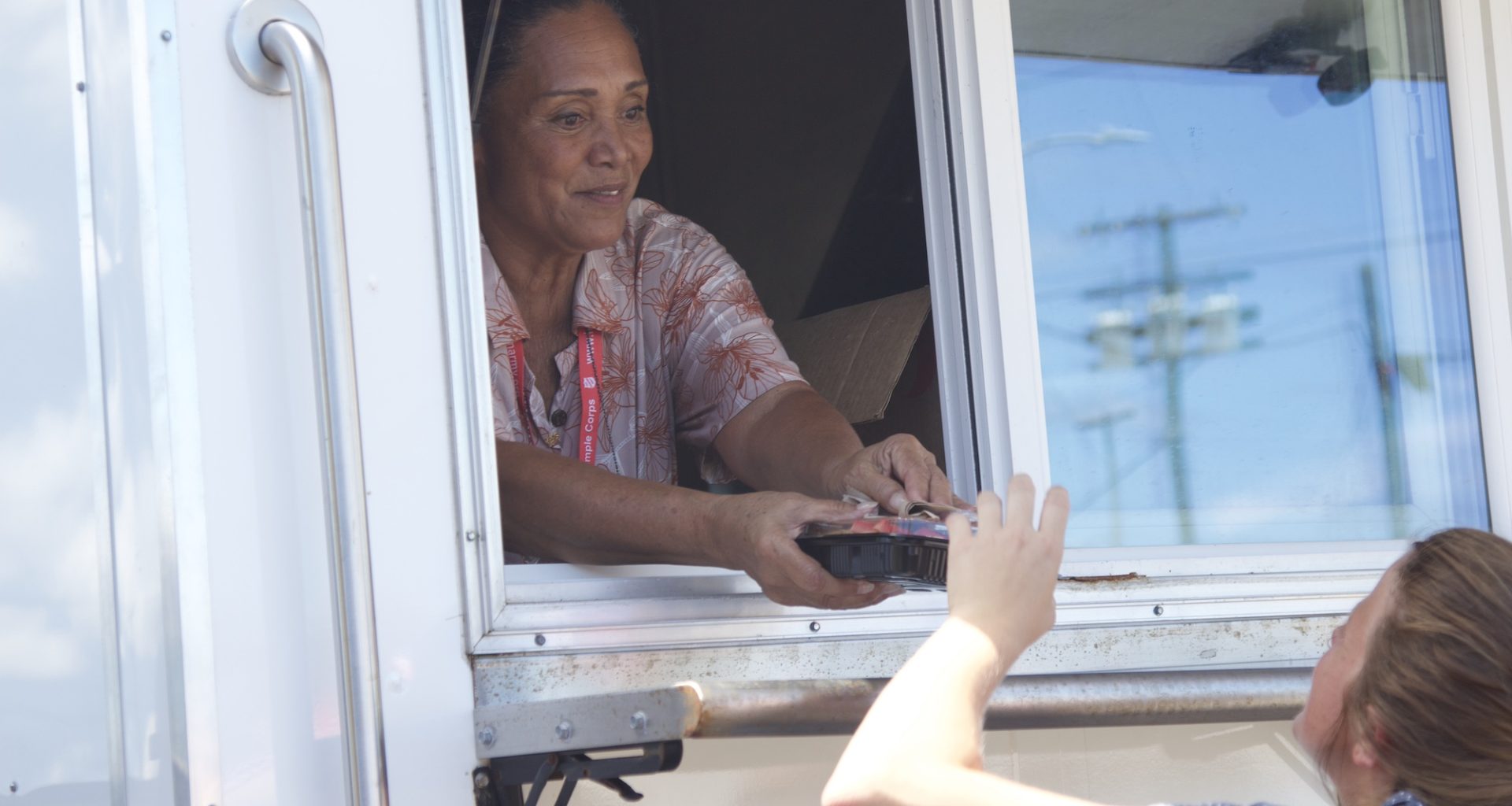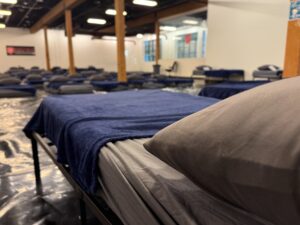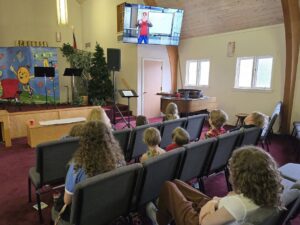Emergency shelter provides support in the downtown area.
Hilo, Hawaii, is often called the wettest city in the U.S. Each year, it receives some 130 inches of rain, according to U.S. Climate Data. The storms often come and go quickly, but for those sleeping on the streets, the precipitation adds additional challenges.
That’s where the Hilo Overnight Safe Space comes in. With it, individuals can spend the night underneath a tent on the grounds of The Salvation Army Hilo Corps. The low-barrier, pet friendly shelter aims to give guests a safe place to stay—away from the elements—from 7 p.m.-7 a.m.
“It’s really for them to come in and sleep and not have to worry about getting abused, getting their belongings stolen and just getting a good night’s rest,” said Captain Felicia LeMar, who with her husband, Captain Sam LeMar, are the Hilo Corps Officers (pastors).
The Overnight Safe Space was dedicated in a ceremony Aug. 30. The morning following the first night of service, Felicia LeMar said she was cleaning and closing up the cots with Social Services Director Roxanne Costa, and one guest was still in bed.
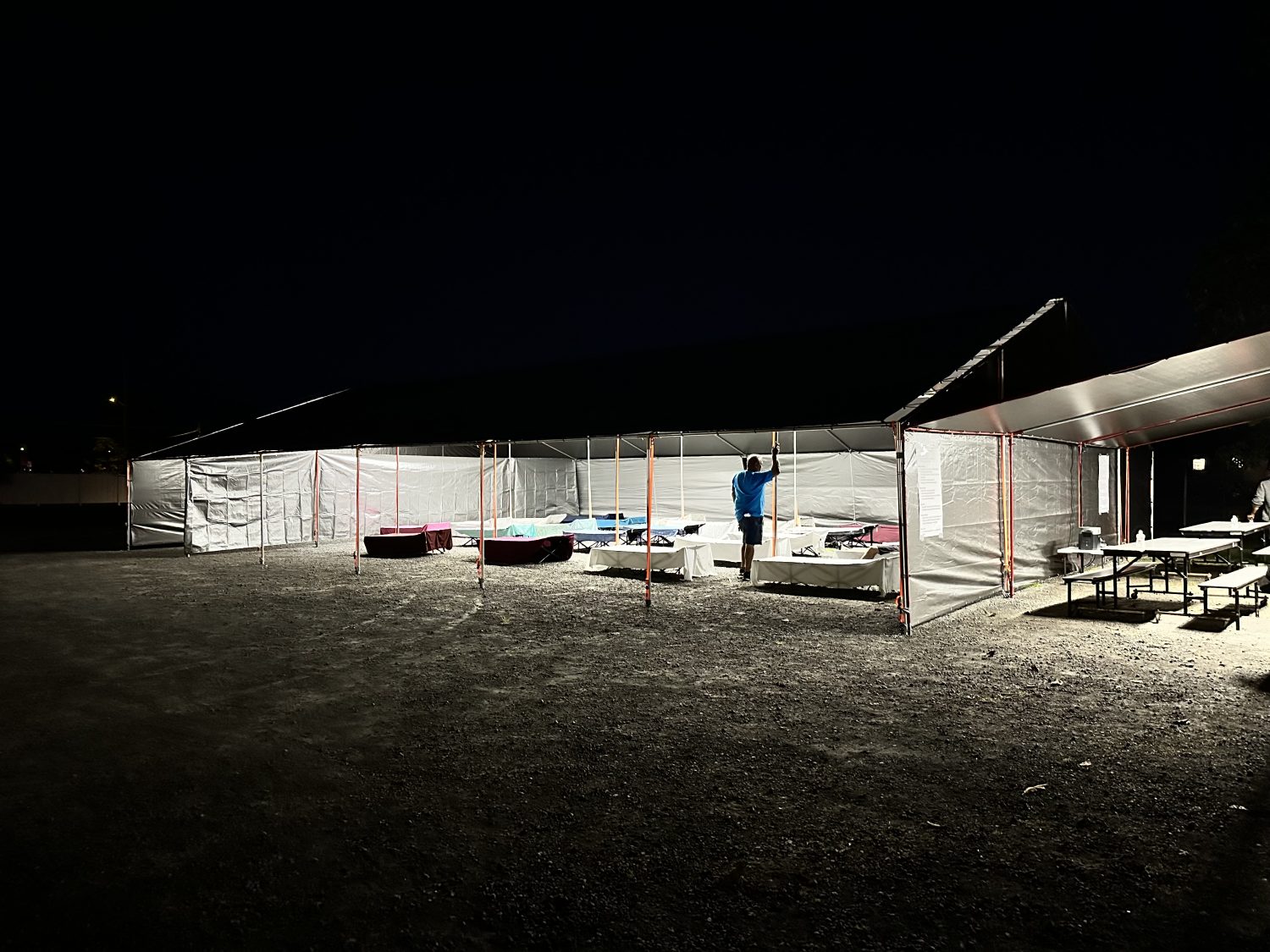
She said they told him he needed to move on for the day.
“He just busts out a loud stretch, loud yawn, and says, ‘That was the best sleep I had in weeks. And I’ll be back tonight,’” she said. “That’s really what it’s about so that they could get a good night’s rest and go and be productive.”
The 2023 Bridging the Gap Homeless Point-In-Time Count found 316 unsheltered individuals across the North and South Hilo regions. Sam LeMar said around 100 individuals stay in the downtown area, where the Hilo Corps is located, and while there are shelters for people experiencing homelessness in the area, most are several miles away and aren’t emergency shelters.
After witnessing the need and seeing the corps’ parking lot when they arrived to the post three years ago, the LeMars were inspired to replicate aspects of an outdoor shelter program from their prior service in Aurora, Colorado. Plus, it was something the corps congregation had wanted—for years, long lines have formed for its lunches, which serve 50-80 people twice a week.
After several years of revisions, the 25-bed emergency shelter opened with the support of $1 million in funding from the state of Hawaii and $800,000 from Hawaii County. Sam LeMar said he has submitted applications for further grants to expand the shelter to 40 beds, along with safe parking spots for people who sleep in their cars, in addition to other offerings.
“We’re not necessarily wanting to just shelter people,” Sam LeMar said. “We want to make sure that they get signed up for services.”
He said The Salvation Army is part of a collaborative group of service providers in the county, and at intake, a caseworker inputs an individual into the county software so different care providers know how to best assist.
The caseworker also helps with tasks like obtaining VA benefits, medical services or housing. Shelter attendants come alongside to meet basic needs and provide encouragement, too.
“One of our things that we tell our staff is always remember that the people we serve aren’t lucky to get our services. We’re blessed to serve them,” Sam LeMar said. “But in Hawaii, that’s not necessarily an issue, because…people take care of people here.”
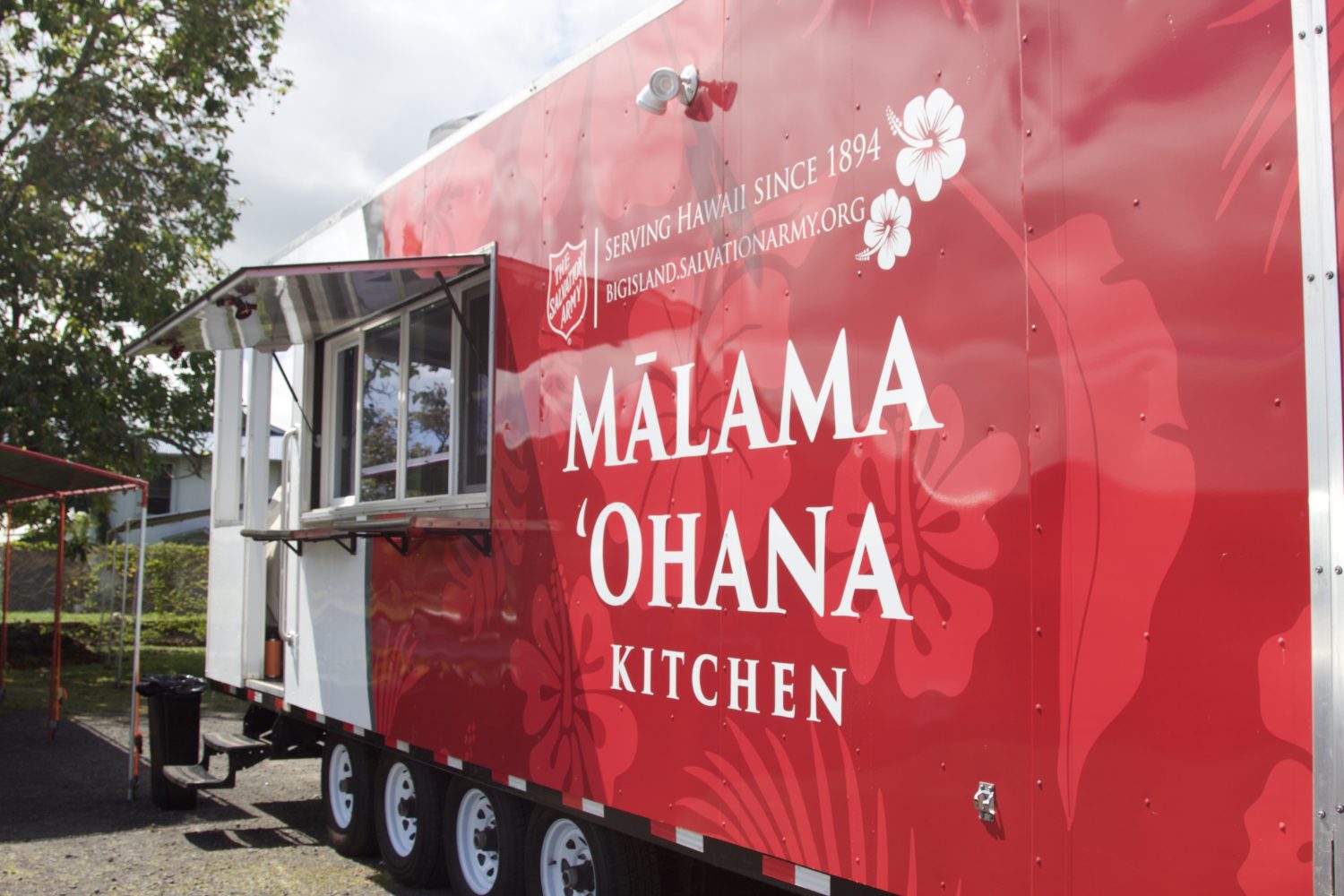
One way is through warm meals provided through the Mālama ‘Ohana Kitchen trailer, which was dedicated alongside the Overnight Safe Space. The 32-foot-long mobile kitchen is designed to look like an aloha shirt and can serve roughly 2,500 meals a day, primarily to the community and to those staying at the Overnight Safe Space.
Sam LeMar said the trailer’s secondary purpose is for emergency/disaster services responses. During the 2018 Kilauea Lava Flow, no such resource existed when The Salvation Army helped serve some 65,000 meals to impacted residents, and other kitchens needed to be utilized.
Another way The Salvation Army is caring for the downtown Hilo community? Through a six-foot privacy fence to “provide dignity and support to both the businesses on the outside and those sleeping on the inside,” he said.
And dignity is key. Felicia LeMar said many shelter guests are people who are trying to find jobs or are waiting to find housing.
“They’re out there trying to be productive,” she said.
One couple, who is expecting a child, had been staying at the Overnight Safe Space since its opening. Felicia LeMar said they found out Sept. 17 they got housing.
“Temporarily we were that place for them to come and sleep,” she said.
Do Good:








